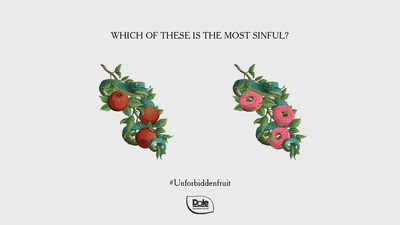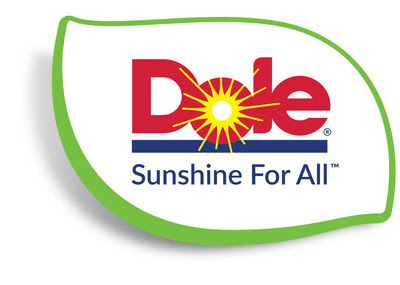Cette lettre amusante vise à transformer la pomme du péché originel en collation originelle et à attirer l’attention sur l’importance d’une bonne alimentation pour tous
SINGAPOUR, 1er juillet 2022 /PRNewswire/ — La calamité du péché originel (et le rôle qu’y a joué la pomme) est indéniablement le désastre de relations publiques le plus catastrophique auquel les fruits aient jamais été confrontés. Aujourd’hui, en l’honneur de la journée internationale des fruits, Dole Sunshine Company a publié une lettre ouverte à Sa Sainteté le pape François, dans La Repubblica, pour demander l’absolution pour la pomme. DSC demande de redorer la réputation des fruits et de les célébrer en tant qu’en-cas originels « sains ».

Pendant des milliers d’années, la pomme a subi cette diffamation après qu’Ève ait croqué une bouchée du « fruit défendu » dans le jardin d’Eden. D’une manière amusante, mais qui, espérons-le, portera ses fruits, DSC cherche à inverser cette diffamation et demande au pape François d’absoudre le fruit de son rôle erroné dans le péché originel. La lettre, un plaidoyer humoristique et sans précédent adressé au souverain pontife, vise à susciter un dialogue mondial sur l’importance des fruits dans un régime alimentaire nutritif et à mettre l’accent sur les avantages des fruits et leur accessibilité globale.
« Nous avons conscience que demander ce changement est une demande audacieuse et provocatrice, et nous ne voulons bien sûr pas manquer de respect à Sa Sainteté ou à l’Église », a déclaré Pier Luigi Sigismondi, président du groupe Dole Packaged Foods & Beverages. « Nous pensons que si nous parvenons à corriger cette représentation erronée du fruit, nous pourrons lancer un nouveau récit narratif mondial qui se concentrera sur ses bienfaits, et créera de nouvelles habitudes alimentaires plus saines, conformes à notre objectif qui est de favoriser une bonne nutrition pour tous. »
Publiée dans le seul journal que le pape François a déclaré lire, la lettre souligne respectueusement que, même si la pomme n’a jamais été explicitement nommée dans la Bible, ce fruit, en particulier, a fait l’objet de calomnies depuis qu’il a été associé à tort au péché originel. Et, dans un monde où il existe clairement des aliments plus mauvais et décadents, la pomme ne devrait plus être considérée comme le fruit défendu. DSC soutient plutôt que le fruit peut même être le héros de l’histoire et impulser un changement dans la conversation sur l’alimentation saine. Ainsi, il deviendrait un moteur pour une meilleure nutrition au niveau mondial.
DSC conclut sa lettre par cette demande humble, mais percutante, au pape François :
« Pour toutes ces raisons et bien plus encore, nous demandons humblement l’absolution que vous seul pouvez offrir. Un petit changement qui peut changer le monde. Envisageriez-vous de modifier la Bible ? Seulement un petit mot. Remplacer “fruit” par tout autre aliment malsain, par exemple ? C’est juste une idée. Si cette demande vous semble un peu trop ambitieuse, ne vous inquiétez pas. Nous comprenons. Peut-être qu’un message de soutien contribuerait grandement à restaurer la confiance du monde dans nos fruits bien-aimés. »
L’intégralité de la lettre, parue aujourd’hui dans le journal préféré du pape François, La Repubblica, peut être consultée sur DoleSunshine.com.
À propos de Dole Sunshine Company
Le nom Dole Sunshine Company est utilisé pour représenter les intérêts mondiaux et les efforts combinés de Dole Asia Holdings, Dole Worldwide Packaged Foods et Dole Asia Fresh. Dole Sunshine Company n’est pas une entité commerciale réelle et n’opère pas en tant que telle dans quelque pays ou région que ce soit. Pour en savoir plus sur Dole Sunshine Company, visitez DoleSunshine.com.
À propos de la promesse de Dole
En juin 2020, Dole Asia Holdings a annoncé la promesse de Dole, dont les trois piliers sont la nutrition, la durabilité et la création d’une valeur commune.
Faire mieux pour les personnes : Faire en sorte que 1 milliard de personnes aient accès à une alimentation durable d’ici 2025 et éliminer le sucre raffiné de tous les produits Dole Packaged Foods d’ici 2025.
Faire mieux pour la planète : Faire en sorte de ne gaspiller aucun fruit des exploitations Dole jusqu’aux marchés d’ici 2025 et supprimer les emballages de plastique fabriqués à partir de combustibles fossiles d’ici 2025. Nous visons aussi à ce que les activités de Dole atteignent la carboneutralité d’ici 2030.
Faire mieux pour tous les intervenants : Dole continuera d’avoir une influence positive sur l’ensemble des agriculteurs, des communautés et des personnes qui travaillent pour elle grâce à son engagement envers l’égalité salariale et des chances et en offrant un niveau toujours plus élevé de sécurité, de nutrition et de bien-être. L’entreprise cherche également à promouvoir les droits de l’homme dans le cadre de ses activités et au sein de ses chaînes d’approvisionnement en bâtissant une culture de transparence et de responsabilité. Dole a aussi pour objectif d’augmenter la valeur de son entreprise de 50 % d’ici 2025.

Photo – https://mma.prnewswire.com/
Logo – https://mma.prnewswire.com/
